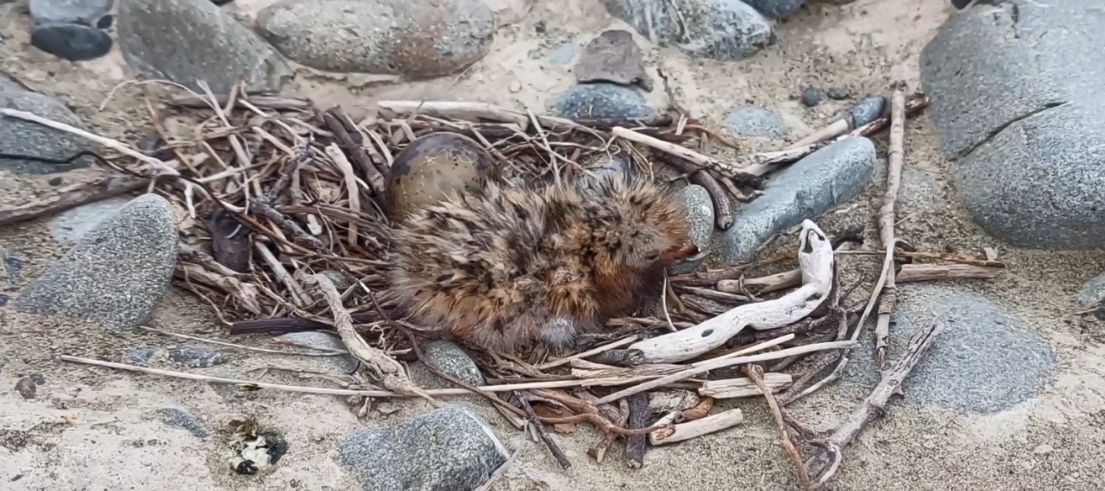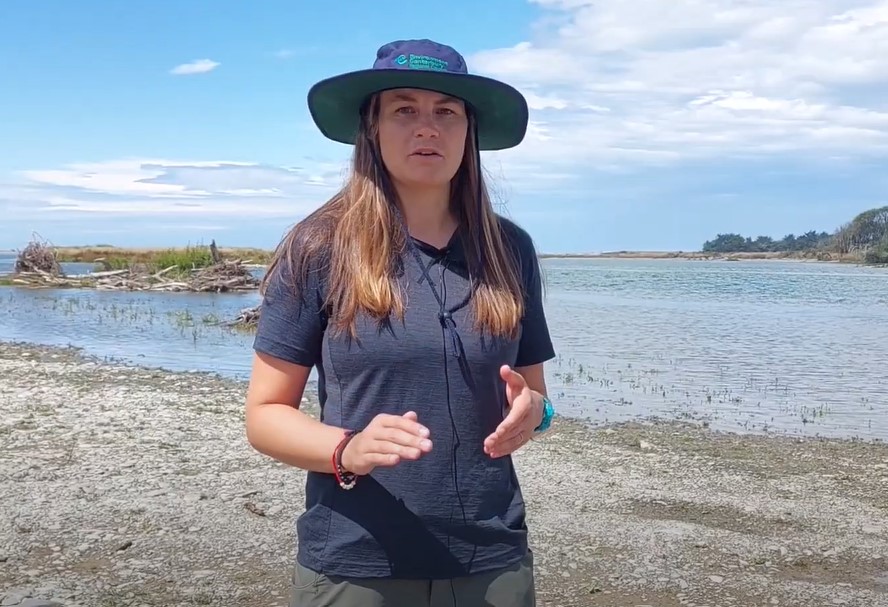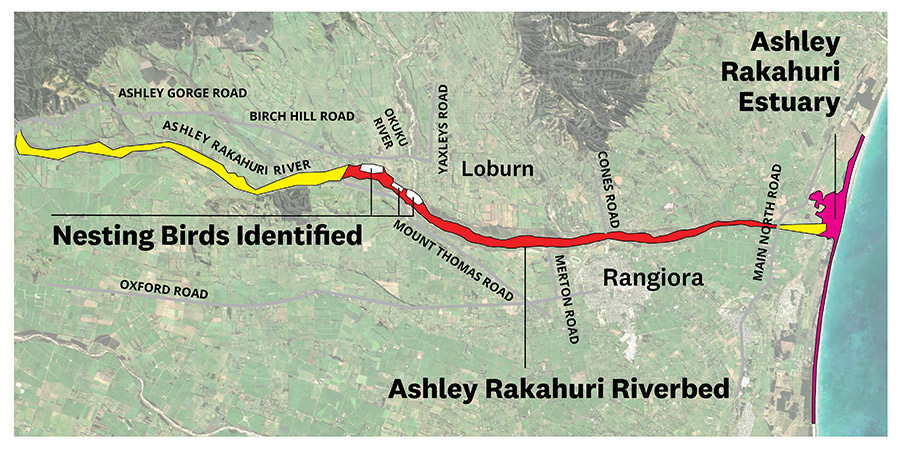
Help our braided river birds rest their wings this breeding season
If you are exploring braided rivers this summer stick to well-formed tracks and avoid areas where birds are nesting.
Braided rivers in Waitaha/Canterbury, in particular the Ashley River/Rakahuri, are the nesting sites for many rare birds after they have migrated from all over the world.
Birds are easily disturbed
The braided river bird nesting season runs from September until February, during this time they are most vulnerable.
Nesting birds are easily disturbed by humans, vehicles, and animals. If they feel under threat, they may abandon their nests and any eggs or chicks. If the eggs are left without their parents, they will chill and the chicks inside will die.
How to spot nesting birds
Ground-nesting birds such as the wrybill/ngutu parore, banded dotterels/pohowera, and black fronted terns/tarapirohe lay eggs that blend seamlessly into the stones of our riverbeds. This makes it hard for predators to spot the eggs and nests – and difficult for humans to see too!
Look out for signage in the area, and be alert. Braided river birds may let you know you are in their territory! They use a variety of behaviours to protect their young from potential threats including:
- Swooping – birds will dive-bomb anyone that comes too close to their nest (and potentially poo on them too!)
- Cawing/squawking – their version of telling you to "back off".
- Distraction – some birds will try and entice you away from the nest by pretending to have a broken wing, bobbing around, or simply running away.
If you notice our native birds displaying these behaviours when you are around our rivers, please leave the area to avoid disturbing their nests or causing them to abandon the colony.
Restricted access along the Ashley/Rakahuri
We work with the Department of Conservation (DOC), and Waimakariri District Council to manage access to different parts of the Rakahuri. Different rules apply in each area. There are warning signs along the river to explain restrictions and remind you that under the Wildlife Act, it is an offence to disturb or harm native wildlife.
In the Rakahuri Estuary and Northern Pegasus Bay, vehicles are restricted, with some very limited seasonal access available for mahinga kai and whitebaiting. Permits are required in some cases. For more information, read this guide to vehicles on the beach (and estuary) from Waimakariri District Council.
Nature’s nurturers
In September we started conducting a karoro/Southern black-backed gull control operation along the Rakahuri. This work, which will continue until February 2024, protects braided river species by targeting karoro which prey on the eggs and chicks of these birds.
The primary goal of the control operation is to relocate the karoro population away safely and efficiently from the estuary. This will be achieved by removing their eggs and nests while ensuring the well-being of non-target species and the public. The ultimate aim is to deter karoro from nesting in the area in the future, thereby contributing to the conservation efforts of endangered braided river bird species.
Our rivers team frequently conduct rare bird species surveys around their worksites and this information is uploaded onto the publicly accessible EBird website by senior environmental advisor for rivers, Melissa Shearer.
"If we find nests or colonies, we alter our work areas so we don’t disturb the birds, or if we cannot shift location then we delay our work until after the nesting has finished," said Melissa.
"This pre-work reporting helps form a picture of sites that are frequently used for nesting so we can figure out which areas to avoid or enhance with predator control, nesting island enhancements, or access restrictions."
A big thank you to the valued volunteers from the Ashley Rakahuri Rivercare Group, who do regular surveys of the various bird populations along the river and set predator traps. Find out more information and support their important mahi on the Ashley Rakahuri Rivercare Group website.


